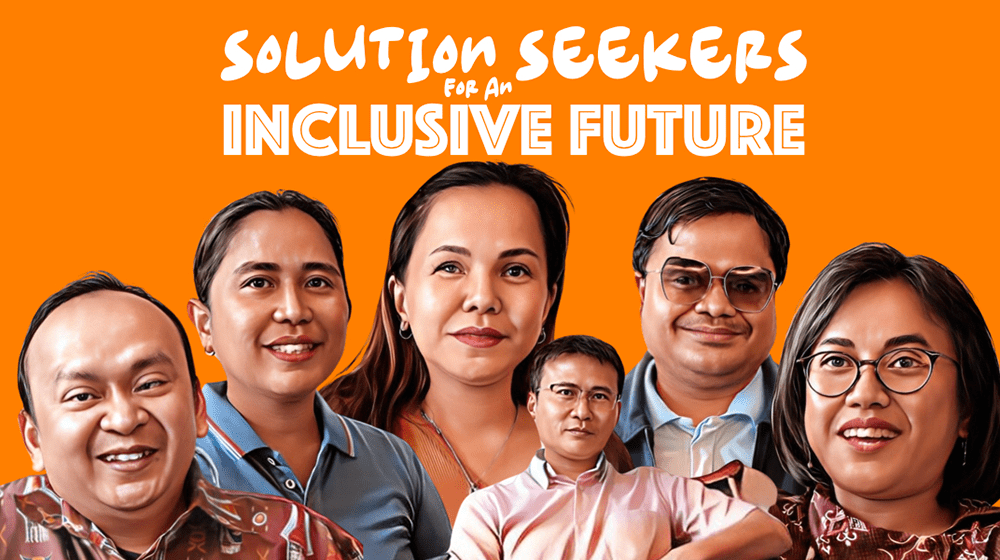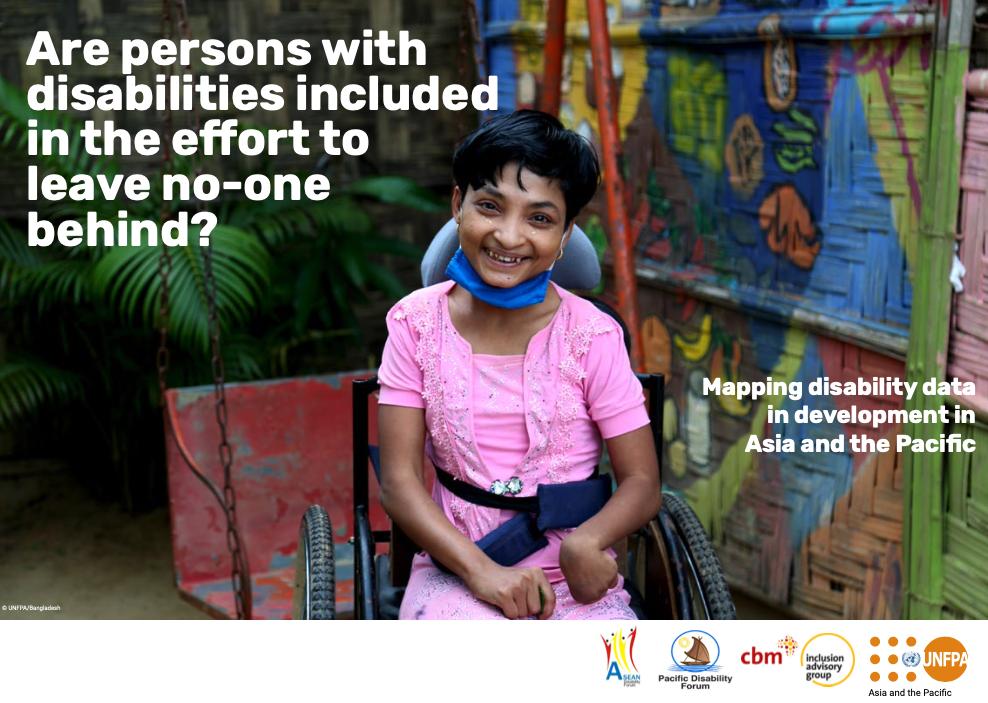One in every seven people in the world has a disability. Governments across the region need to build more inclusive services to deliver education, healthcare and economic support so persons with disabilities can thrive and play a vital role in their communities.
CBM Global’s Inclusion Advisory Group partnered with the International Disability Alliance on a fellowship programme for disability activists with UNFPA support. The project brings together persons with disabilities from the Philippines, Indonesia and Lao People’s Democratic Republic who want to engage more deeply in inclusion advisory work. The solutions for transforming societies to become more inclusive are as diverse as the people who are driving this change.
This collection shares the stories of 6 of the fellows taking part in the programme who are creating a better world by building better systems to uphold the fundamental human rights of persons with disabilities.
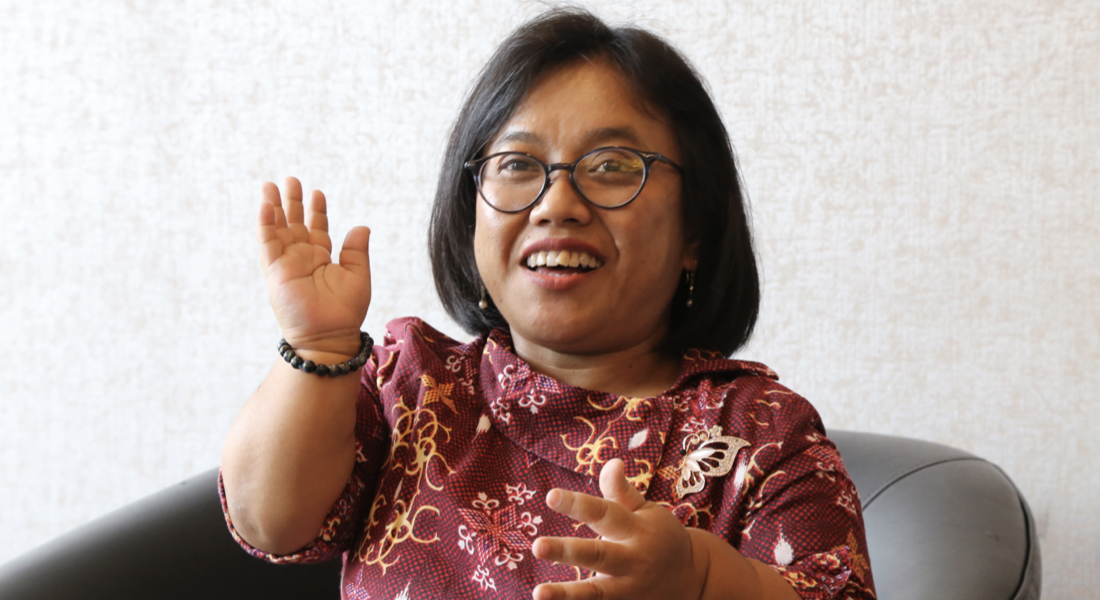
Ida Puji Astuti - Indonesia
Ida Puji Astuti has had a disability since she was five, but while she was growing up she wasn't aware about disability issues and she did not think that disability discrimination still existed. “I had no problem going to school,” she says. “I have a supportive family. I have supportive friends, so I thought life is balanced and everything is okay.”
She graduated from one of the most prestigious universities in Indonesia, but found it difficult to get a job. “Discrimination still exists and I don't want any other people to experience that,” Ida says. “At least I can do something to make a change. Maybe not a big difference because I am just an individual part of this big world, but at least I can do something.”
Ida is part of Institute Inclusive Indonesia (I3), an organization that she helped set up in 2018. They provide consultancy advice and advocate for inclusion for persons with disabilities. “It's about improving access,” she says. “I am also part of a local project that works to find student employment for persons with disabilities, especially in the garment industry.”
“Discrimination still exists and I don't want any other people
to experience that.”
Not many persons with disabilities in her community can achieve the level of success Ida has attained. “I live in a small city where most people with disabilities have fewer chances to achieve this level. It feels like I'm alone. I don't have a peer to have discussions with to deepen my knowledge and understanding about issues.”
She is excited to connect with other disability advocates as part of the fellowship. “I have a lot of chances to improve my skills, having discussions with peers and having mentors.”
Ida is working on an advisory project that involves a complex process of consultation and planning around how Indonesia collects, stores and uses data about persons with disabilities. She has been able to use her fellowship mentor as a resource for this work throughout the process. Ida also is drawing from the disability data concepts shared in fellowship webinars and workshops. For her, the most helpful thing is using the fellowship to connect with fellow disability advisors in other countries to share how they are going about similar processes
Ida says she is starting to see signs of success and that inspire her to do more. “ I went to one of the government entities and met persons with disabilities who were hired by the government. I said to myself, ‘I'm part of the movement. They are given the chance to be in the institution because of the disability movement and I'm part of that movement. I'm so proud of it.’”
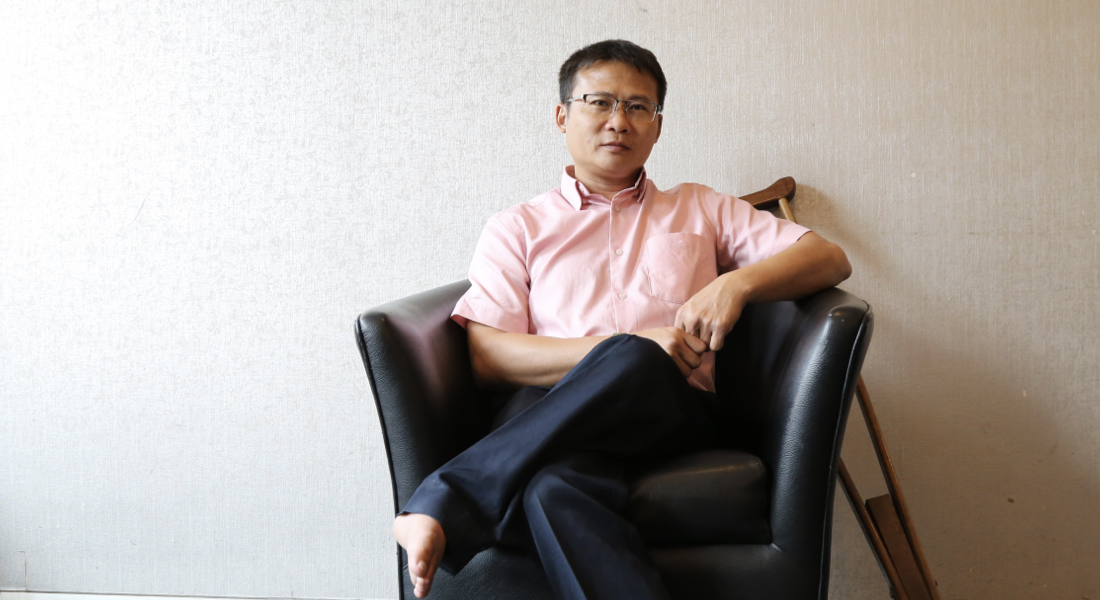
Samnieng Thammavong - Lao PDR
Samnieng Thammavong is the Director of the Lao PDR Persons with Disabilities Association. He’s responsible for overall operation and communicating with government, donors and development partners.
“Our main job is to advocate,” he says. “We advocate for social inclusion for persons with disabilities, we advocate for equal opportunity for persons with disabilities.”
“The fellowship helped me in my career and helped my job very much. As an organization to advocate for social inclusion and to advocate for policy for persons with disability, it requires advising skills so that I can work better and I can improve what I do.”
"The goal is to achieve better inclusion so people with disabilities won't be left behind."
He works with the government to produce better policies for persons with disabilities. “In the past 2 years we have produced the law for persons with disabilities, which is the first-ever law that includes persons with disabilities.”
Samnieng has been responsible for leading a national disability inclusion monitoring process with the government. He has been able to draw on support from the fellowship as he goes about this complex task. “Doing this job, advocating for equal opportunity for persons with disabilities is an inspiring job.”
Samnieng is also a person with a disability, as is his wife and his brother, so the work is deeply personal. He says advocacy work is not fast. “We cannot achieve what we aim to achieve within the short term, and a lot of effort is required. It requires many people, many sectors to work together. The goal is to achieve better inclusion so persons with disabilities won't be left behind. It won't take one or two years to achieve. It will take all of us many years working towards that goal of inclusion.”
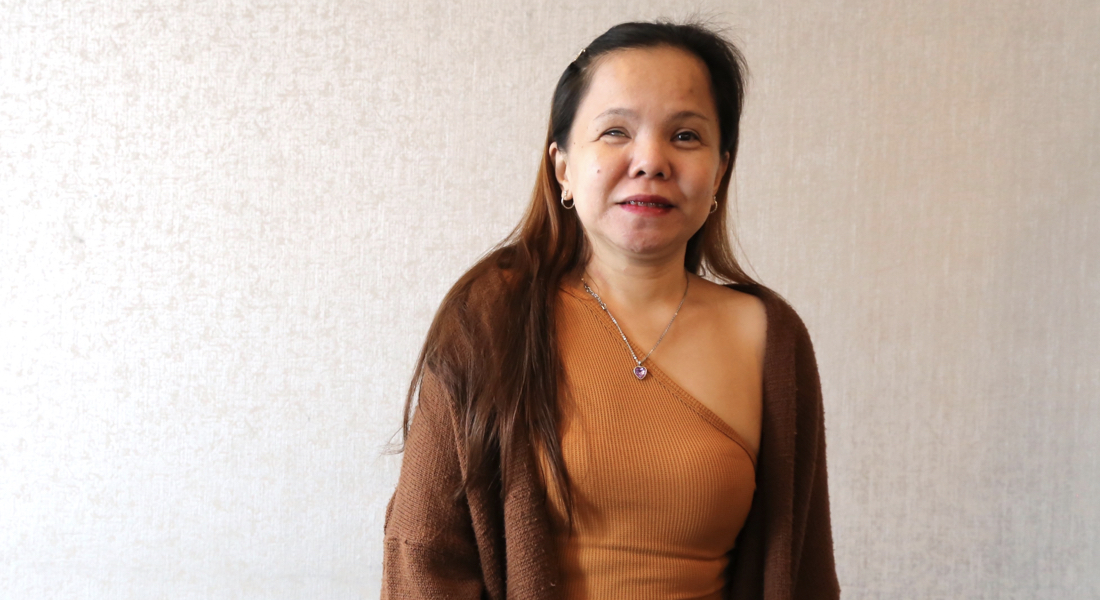
Janine Cruzet - Philippines
“A woman with a disability experiences a lot of barriers and discrimination,” says Janine. “We are discriminated against because of our disability, and because we are women, and because of our status in the society in the Philippines.”
Janine Cruzet runs the disability rights group called Women with Disabilities Taking Action on Reproductive Health and Human Rights. In 2015 she worked as a peer action researcher with UNFPA and other partners to explore how women and girls with disabilities access justice in the Philippines.
“It touched my heart that a lot of women and girls with disabilities in the Philippines experience violence and abuse. It was not easily recorded because they were not involved in their community or they had fears about reporting. These women have rights to access justice and rights to have reproductive health.”
The research collaboration with UNFPA, the University of the Philippines, University of Melbourne, used peer action groups with on-the-ground perspectives gathered by teams of people like Janine. She says doing interviews, focus group discussions, surveys and “going to the community, listening and hearing stories was a life-changing experience for me.”
"Women and girls with disabilities who have experienced violence have the right to access justice and right to
have reproductive health.”
Inspired by this experience, Janine helped set up Women with Disabilities Taking Action on Reproductive Health and Human Rights. It works to include the voices of women and girls with disabilities in government development work. She is now part of the pilot fellowship programme for disability activists from the Philippines, Indonesia and Lao People’s Democratic Republic who want to engage more deeply in inclusion advisory work.
“This fellowship helped me to relearn the United Nations Convention on the Rights of Persons with Disabilities (UNCRPD) and learn more. It is about being an effective advocate. All our advocacy work is anchored with UNCRPD.”
She says the fellowship, meeting with other peers and leaders from the region, has helped her expand her skills. “When you are doing your advisory work, it's quite different. As an advisor we ask ‘How are we going to use the articles on the UNCRPD to give advice effectively to make the programmes, the projects work for everyone?’”
Janine has been using the fellowship to expand her networks, including having more opportunities to work with UNFPA, who she sees as a critical stakeholder given her focus area of sexual and reproductive health and rights. Janine co-facilitated a webinar on disability data with UNFPA offices in other countries from around the region.
She says one of her biggest frustrations has been acknowledging the realities of discrimination. “Even though I know by heart the UNCRPD, it's not enough for me to say that we can eliminate discrimination, that I will not experience discrimination as a woman with a disability. That is a reality that I have to accept. But in that realization, there are ways on how we are going to make our lives better.”
Janine was part of a group of persons with disabilities who collaborated with UNFPA to produce, Respect, recognise, engage: Making life-saving information accessible for persons with disabilities. The video is the first-of-its-kind video at UNFPA, seeking to make the film truly accessible to persons with a range of disabilities, including visual impairment.
She says many Filipina women with disabilities face systemic barriers. “They don't go to school. They can't get good employment because they are women. That's one of the many reasons why we are marginalized.”
Janine says fears of discrimination and safety as a woman with a disability shape her choices about what jobs she applies for. “Because I am a woman and a visually impaired person, I am afraid that I might experience violence and abuse. It makes me angry that I can't do the work that I really want to and aspire to do.”
Despite the many challenges, Janine finds inspiration with the women with members of her organization from lower socioeconomic backgrounds who have not had the same opportunities to participate that she has had. “They are my inspiration,” she says. “Most of our members in our organization are born women with disabilities. Some of them are not well educated. We can make their voices heard to move forward. That's the steering fire that keeps me moving.”
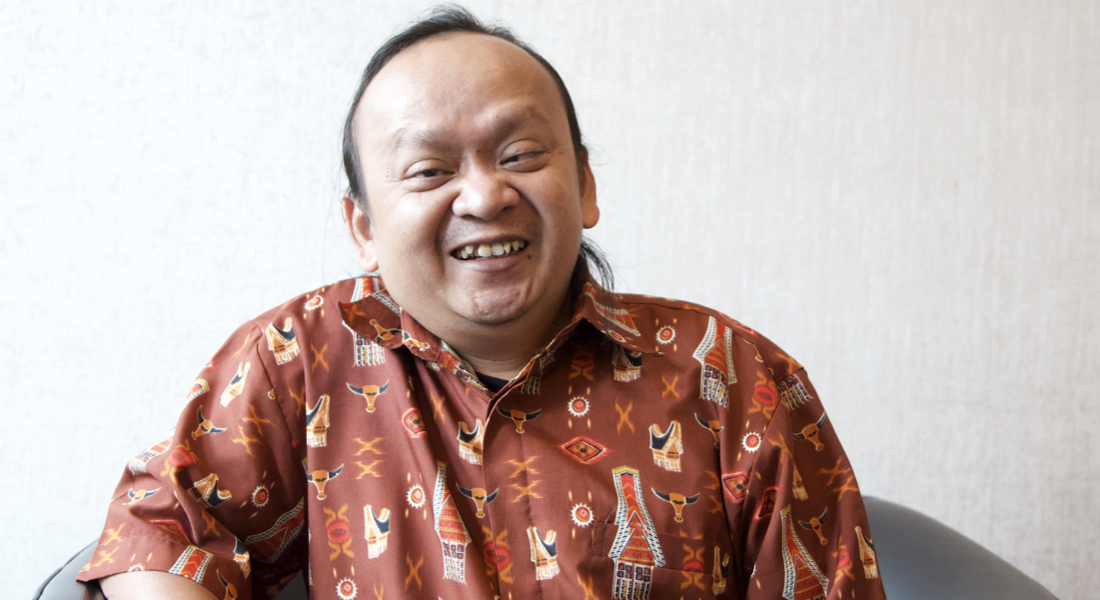
Sholih Muhdlor - Indonesia
“I can become who I am because of the support of my community, my family, and my neighborhood,” says Sholih. “I want to give back as much as possible; as much as I can, to as many people and situations that I can.”
Sholih Muhdlor is a Gender Equality, Disability and Social Inclusion officer in SAPDA Foundation in Indonesia. It’s an NGO for persons with disabilities in Yogyakarta. “I work on cross-cutting issues for persons with disabilities offering advice on how to improve project outcomes.”
“It's not just about the job,” he says. “It's not just about professional work; it's about how I can fulfill my own soul with what I can do? What can I give back to my community after what they have done for me?”
“I can become who I am because of the support of my community, my family, and my neighborhood. What can I give back to my community after what they have done for me?”
Sholih does cross-cutting work to make sure that every project they support is in compliance with the inclusive principles, be it disaster risk reduction, violence, or climate change. Beyond the main focus on inclusive development, Sholih also works to make emergency response more accessible to persons with disabilities. “When a disaster comes, an emergency situation occurs. I am in an emergency response team together with a consortium of partners.”
Sholih gets assigned to be on a team and his duty is to ensure that the response is beneficial to persons with disability in the affected area. For him the work is deeply personal. “I was one of the earthquake survivors in Yogyakarta in 2006. I've been a person with a disability since I was born.”
“The fellowship is about being able to give advice rather than advocacy. It deepens my skills and knowledge about how to fight for persons with disabilities.” Sholih is learning new capacity development and facilitation techniques as part of the fellowship. “I ran a workshop for other organizations of persons with disabilities. I enjoyed making the workshop more practical, setting tasks for them to do and then de-briefing these, instead of just talking through the concepts from the front.”
Sholih says the fellowship has inspired him to continue to push for a more inclusive Indonesia. “The challenges are political, cultural, geographic, and demographic. It’s not easy to be inclusive in our development.”
He admits while progress has been promising, most gains have been limited to urban centers. “Most programmes that exist only in Java. I don't think that these rural areas have benefited from all the efforts that we have done over the last 15 years. There is still a long way to go to make this effort spread to the whole of Indonesia.”
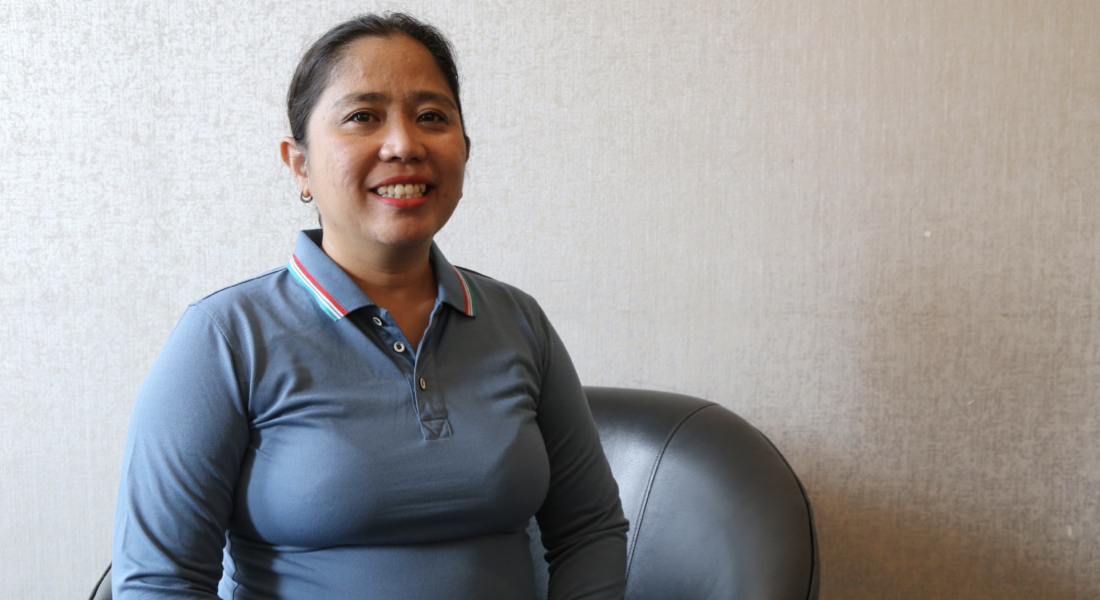
Mona Liza Labitoria-Visperas - Philippines
“I advocate for the mental health of persons with disabilities,” says Mona Liza. “Especially children with disabilities and women with disabilities who experience violence against women and children. I advocate for the sustainable development goals and realization of the UN Convention on the Rights of Persons with Disabilities.”
Mona Liza Labitoria-Visperas works with Filipino Families for Mental Health in grassroots communities, especially the local government. She says she is inspired to do this work because she wants to leave a legacy for her children.
“I have rich grandparents and poor grandparents, but I realized that it's not just money that you can leave behind for your children. I think a far better legacy is building a community that supports them and helps them to be the best that they can be.”
Mona has a psychosocial disability, and her son has autism. She wants to build a community where everyone is counted. “My son is really smart but he is different,” she says. “I want people to see his strengths and not focus on his weaknesses. It's my way of turning my pain into purpose.”
“I want people to see my sons' strengths and not focus on his weaknesses. Advocacy is my way of turning my pain into purpose.”
Being the mother of a child with disabilities is extremely challenging, so she advocates for mental health. “I think it's important for caregivers to take care of themselves and so that they can have a healing environment for everyone.”
Mona began her journey as an advocate when her son was diagnosed with autism in Taguig. “I was doing all this volunteer work for persons with disability, I got to know all the issues underlying the lives of persons with disability.”
“The fellowship empowers me with skills and builds my capacity to really make the changes necessary. I want things to be done fast but it's not going to be fast; it's a progressive realization.”
She says accepting the patience gradual progress has been healing. “I don't have to be so stressed about doing all of these things superfast because everything can be taken in a step-by-step process and I have all these people working with me. I'm not alone.”
Mona Liza says with the capacity that she is growing she can invite more allies and build more people to grow with. “We can all do these things together.”
She has found a special purpose and belonging in a wider community of disability advocates. “Even if there are barriers, we can overcome them,” she says. “It's not going to be easy, it's not going to happen right now, this instant. But I have hope and faith that it will happen. I see a bright future for my family and my children. We can leave a legacy of a better society for them.”
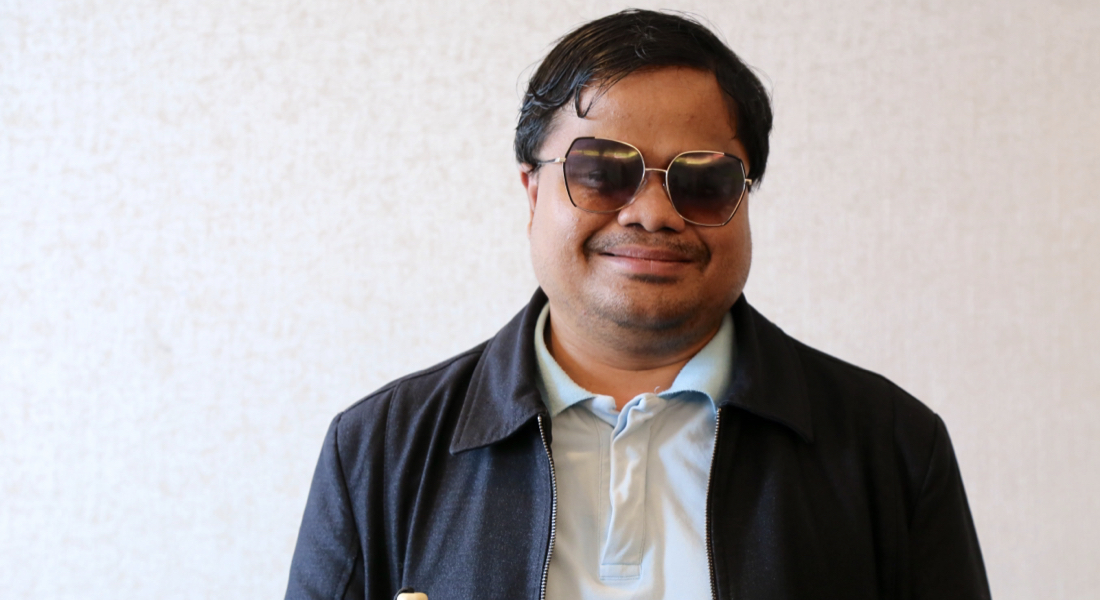
Aikeo Koomanivong - Lao PDR
“I am a person with a disability,” says Aikeo “I have 6 people in my family with blindness including my wife and her brothers. I feel the rights of persons with disabilities in my country still need to be improved.”
Aikeo is the director of the Disability Service Centre and a focal point to organize sessions that gather inputs from persons with disabilities in Lao PDR. “My position is working for disability inclusive development. We are working to provide advice so there is more inclusive education for persons with disabilities. We provide advice to the INGOs and local government. for employment projects. We also work for better policy engagement for persons with disabilities.”
"The rights of persons with disabilities in my country
still need to be improved.”
“This fellowship programme helps me increase my working experiences because most of my job involves consulting through partners who are working for community development. It has helped me increase my knowledge on what I'm doing and refine how we can approach disability inclusion.”
Aikeo has been working with UNFPA to ensure persons with disabilities in Lao PDR are part of the planning for the upcoming census, to make sure that disability data is incorporated into the census in the most effective way.
He says a major challenge in Lao PDR is that the laws on persons with disabilities to protect and promote persons with disabilities in Lao PDR are not practical. “We are a small country and we don't have good mechanisms to approach disability inclusion with our government.”
Despite the challenges in Lao PDR, Aikeo is optimistic about the future. “We need to think positively and we need to look for new partners who can support us in working together with our government. I think we can remove barriers and challenges. With the right partners we can get through it.”
REPORT: Are persons with disabilities included in the effort to leave no-one behind?
Mapping disability data in development in Asia and the Pacific
Learn more
Advisory Capacity Development and Exchange (ACE) Fellowship
Data and persons with disabilities | CBM Global (cbm-global.org)
SDG-CRPD resource package | OHCHR
We Decide: Including and empowering persons with disabilities
UNFPA Asia Pacific | Disability Data
IASC Guidelines, Inclusion of Persons with Disabilities in Humanitarian Action, 2019
Standing up for the rights and choices of people with disabilities
Committee on the Rights of Persons with Disabilities
United Nations Disability Inclusion Strategy
The Women's International Network for Disaster Risk Reduction
Photos:
©UNFPA Indonesia/ Itsnain G Bagus
©UNFPA Indonesia/ Lucky Putra

